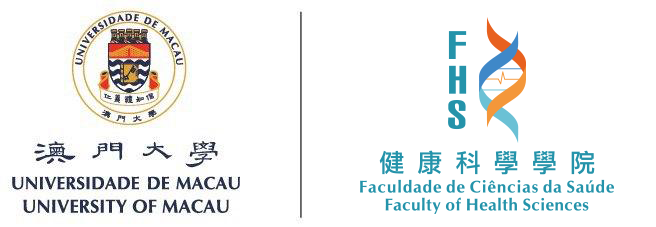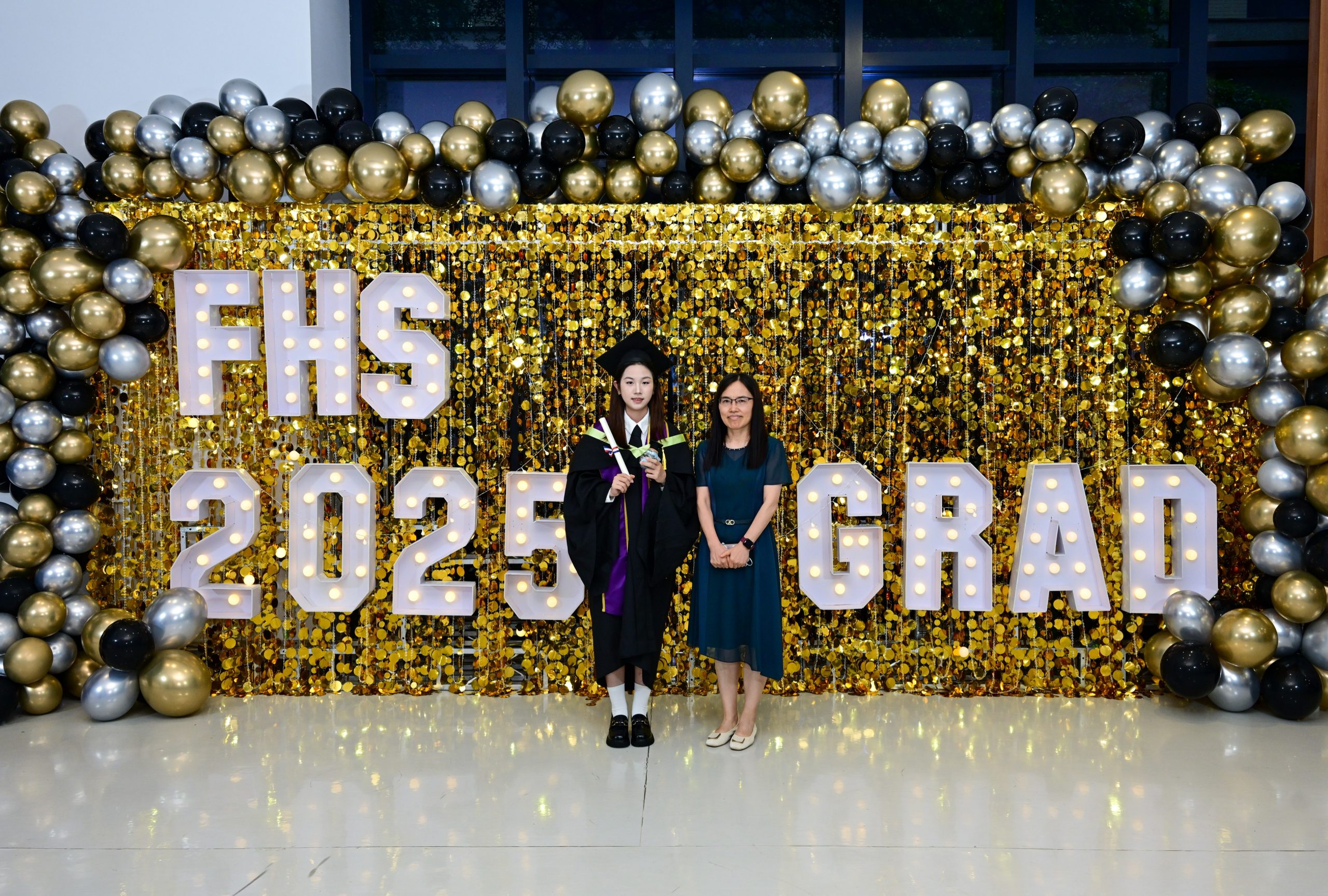Joanna YEUNG, an outstanding 2025 graduate of the Faculty of Health Sciences (FHS) at the University of Macau (UM), has earned a place on this year’s Dean’s Honours List for her excellent academic performance and active participation in research activities. She plans to continue her studies at UM by pursuing a PhD in Biomedical Sciences, delving deeper into disease mechanisms and innovative therapies, furthering the scientific passion and determination she demonstrated during her undergraduate years.
Joanna explains that her love for biomedical sciences did not arise by chance, but was deeply influenced by her family. Growing up surrounded by relatives working in the medical field, she witnessed their dedication to saving lives on the clinical front line, which instilled in her a deep respect and aspiration for biomedicine. When choosing a university, she carefully considered her options and ultimately chose to study the Bachelor of Science in Biomedical Sciences with specialization in Pharmaceutical Science and Technology programme at FHS. This was because UM combines Macao and Greater Bay Area research resources with clinical advantages, offering an environment that equally values theory and practice. Moreover, thanks to its geographical location and policy support, she was able to access pharmaceutical research networks in Mainland China and Portuguese-speaking countries, integrating local and international resources to prepare for future scientific research and career development in the Greater Bay Area.
She recalls that two experiences observing life under the microscope fundamentally changed her understanding and passion for biomedical sciences. The first was in biology class in secondary school, observing mitosis in onion root tip cells—the arrangement of chromosomes, formation of spindle fibres, and cell division, each step executed with astonishing precision—giving her the first sense of the order and wonder of life sciences. The second was during a university laboratory class, where she personally conducted cell culture and observed the dynamic changes in live cells. She describes that moment as if a door to the world of research had opened, allowing her to truly grasp the complexity of the human body and inspiring her to pursue scientific research and explore the microscopic world of life.
Throughout her academic journey, Joanna also faced considerable challenges, particularly at the outset of courses in bioinformatics and statistics. She admits that at first, she struggled to understand the lecture materials, feeling as though “each lesson was like listening to a foreign language”. To overcome this hurdle, she proactively sought help from teaching assistants and classmates, and adjusted her learning strategies by using real-case examples to understand statistical methods in application, while dedicating extra time to practice and consolidate her knowledge. This experience not only enhanced her academic understanding and analytical skills, but also fostered resilience in the face of difficulties, laying a solid foundation for her future research work, especially in data processing and research design.
Among her learning experiences, the guidance and encouragement of Prof Hongjie ZHANG were particularly memorable. On the eve of her Honours College graduation project presentation, she felt anxious due to a lack of confidence in public speaking. Prof Zhang not only offered encouragement, but also reminded her that the most important aspect of an academic report is to clearly convey the research logic, rather than performing with rhetorical flair. Joanna was especially touched when Prof Zhang referred to a presentation she gave in her second year, praising her clear explanation at that time. Joanna said: ‘I never expected that after two years, she would still remember the classroom performance of an ordinary student. This detail has stayed with me ever since.’ This interaction helped her regain confidence and complete her presentation in her own style, ultimately earning the recognition of her supervisors. It also made her realise that there is no single standard to pursue on the academic path; instead, it is important to find the expression that suits oneself best.
Looking to the future, Joanna hopes to focus on the molecular mechanisms of disease during her doctoral studies and promote the translation of research outcomes into clinical applications. In the long term, she aspires to engage in both teaching and research, nurturing more pharmaceutical talents and contributing to the development of biomedical sciences locally. Joanna also encourages her junior colleagues to make full use of the diverse resources provided by UM and to boldly explore different fields and activities. She shared that in the summer after her third year, she served as a student mentor for the FHS summer camp, leading local secondary school students to experience biomedical courses and basic experiments. This experience not only improved her teamwork and leadership skills, but also made her realise her passion for the dissemination of knowledge, further solidifying her determination to pursue further study and a career in education. She encourages her juniors to actively participate in various activities organised by FHS and UM, to avoid measuring themselves solely by grades, and to be courageous in exploring, discovering interests through practice, nurturing diverse abilities, and finding their own development path on UM’s multi-faceted platform.




